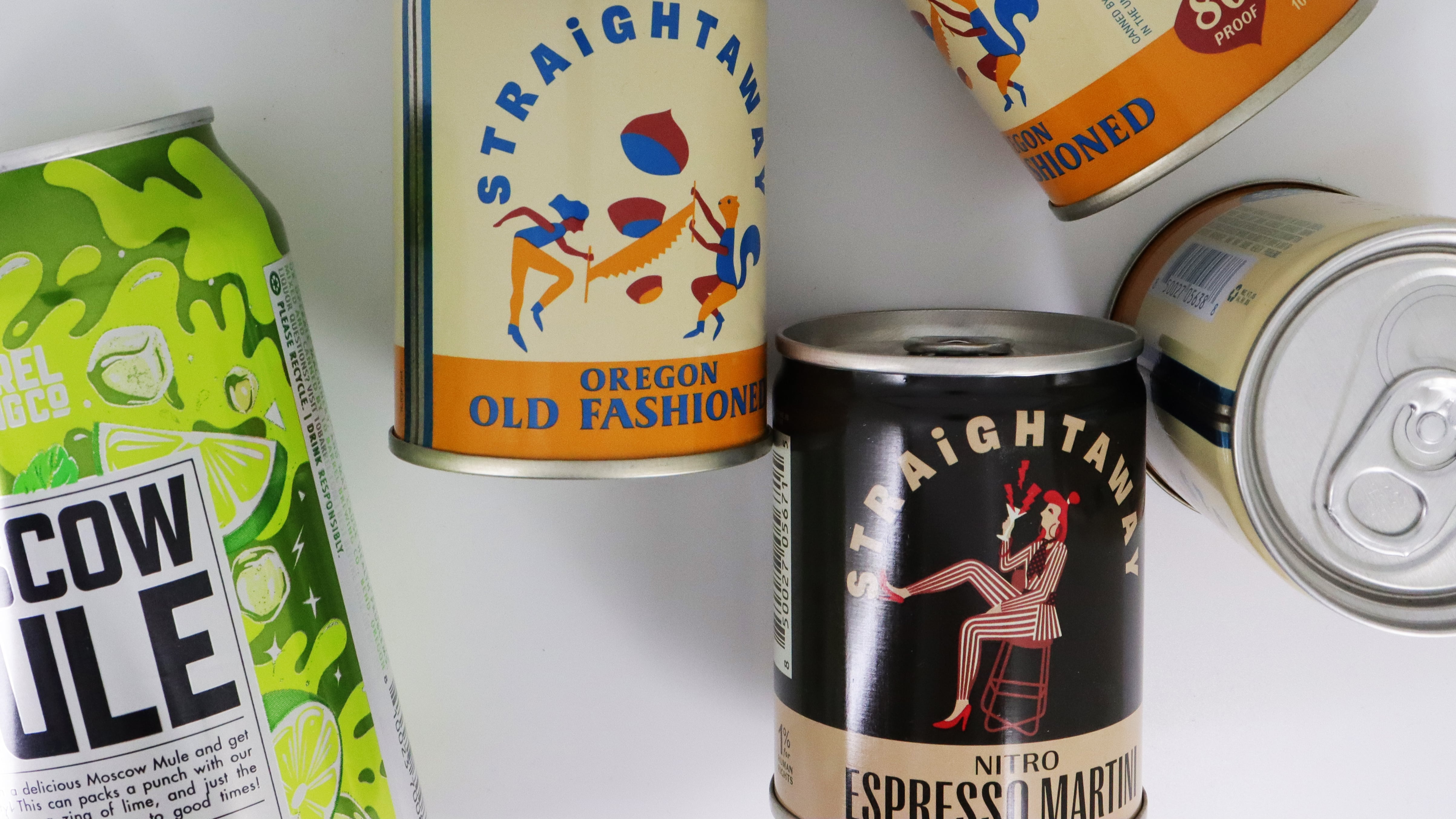This story was produced by the Oregon Journalism Project, a nonprofit newsroom covering the state.
At its Nov. 20 meeting, the Oregon Liquor and Cannabis Commission decisively rejected a proposal to allow grocers to sell canned cocktails made with distilled spirits.
“Privatizing cocktails in a can would lead to less revenue and higher costs for our communities, narrow the choices of Oregon consumers, and undermine public health and safety by increasing the chance that minors will gain access to these liquor products,” OLCC chair Dennis Doherty said.
As the Oregon Journalism Project reported in October, the Northwest Grocery Retail Association circulated a proposal earlier this fall to sell spirit-based canned cocktails (limited to 14% alcohol by volume) at Oregon’s roughly 800 grocery stores. The grocers say 31 states allow such sales. Oregon grocers may sell canned cocktails made from a fermented base, such as wine or beer.
Currently, only the 285 OLCC-chartered state liquor stores are allowed to sell spirit-based canned cocktails. While alcohol consumption overall is declining in the U.S., the consumption of canned cocktails is growing.
That growth explains why the grocers want in and why the OLCC, which generates revenue for state and local governments with its liquor monopoly, wants to keep its stranglehold on spirits-based canned cocktails, which had $8 million in Oregon sales last year.
The grocers have repeatedly tried at the ballot—without success—to privatize all liquor sales, which Washington voters did in 2011. The failure of those efforts has meant the OLCC has maintained a tight grip on hard liquor sales. Oregon is one of 17 “control” states that retain post-Prohibition regulations that allow alcohol sales only at state stores. A majority of states, including California, Washington and Nevada, have privatized such sales.
OLCC argued that expanding sales outlets to include 800 grocery stores would result in a reduction in revenue to the state. Grocers said the claim is “wildly at odds with the experience of other states.”
The agency also speculated that allowing grocers to sell canned cocktails would cannibalize existing alcohol sales because “canned cocktail consumers will buy less beer or wine, including those produced in Oregon.”
Finally, the OLCC warned “grocery stores lack controlled entry and age restricted areas” and “as a result, it would be easier for minors to gain access to cocktails in a can, endangering their health and safety.” (Grocery and convenience stores already sell beer and wines containing up to 21% alcohol by volume.)
Northwest Grocery Retail Association CEO Amanda Dalton said safety concerns are misplaced: “In fact,” Dalton tells OJP, the agency’s own data “shows an 84% compliance rate for grocery stores compared to just 68% of liquor stores.” (An OLCC spokesperson said the agency could not respond to those figures before OJP’s deadline.)
Lawmakers are expected to consider canned cocktails in next year’s short session, which begins Feb. 2.
Dalton says that her group might take the ballot initiative route if all else fails.
“We believe the majority of Oregonians support the convenience of purchasing ready-to-drink cocktails, and eventually all spirits-based beverages, in their local grocery store,” Dalton says. “That is not what is currently on the table. However, if the Legislature fails to act we will be forced to consider taking our effort to the ballot.”

